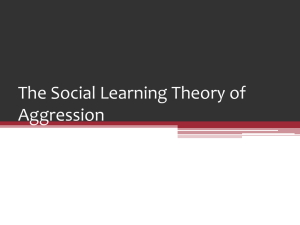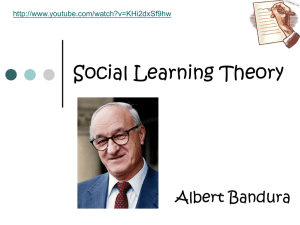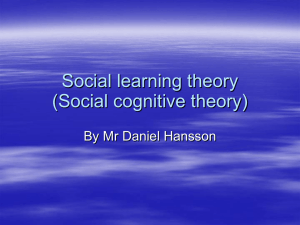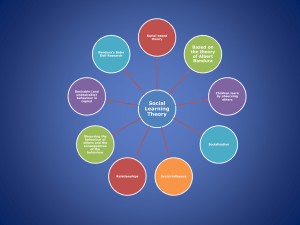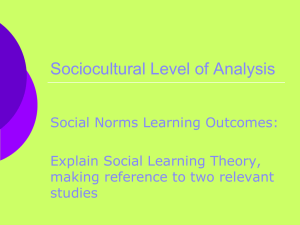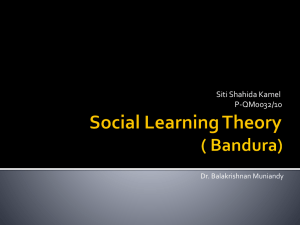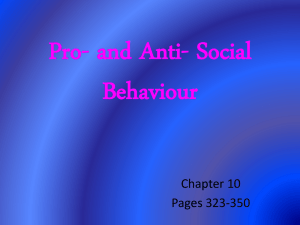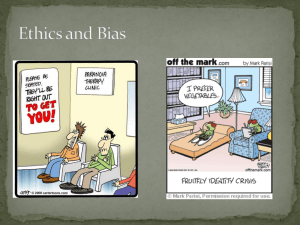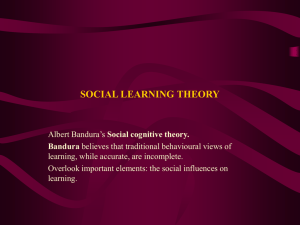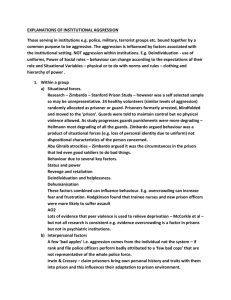The Social Learning Theory of Aggression
advertisement
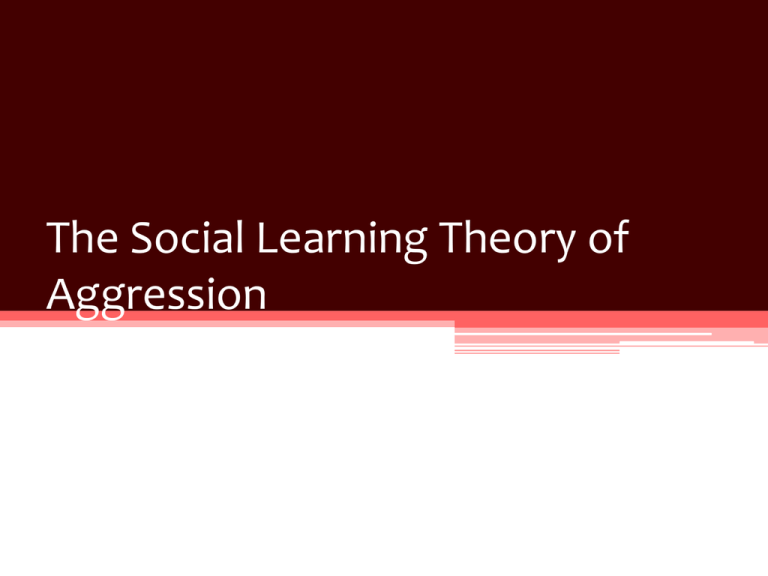
The Social Learning Theory of Aggression • Who do you look up to? Who is your role model? Have you ever observed a behaviour that you have then copied? Social Learning Theory • According the Bandura, there are 4 processes involved with Social Learning • • • • Attention Retention Reproduction Motivation • Mnemonic? Example • Jane dyes her hair pink because her favourite celebrity has done so. ▫ First Jane paid attention to what the celebrity had done ▫ Jane then retained this information ▫ Jane was capable of reproducing the behaviour of dying her hair ▫ Jane was motivated to dye her hair pink and did so Factors involved in SLT • The more similar the role model is to the observer, the more likely that the behaviour will be imitated ▫ Same gender ▫ Same age • Also, if the role model is seen in a positive light ▫ High status ▫ Likeable Behaviourist Assumption Social Learning Theory • Social learning is learning through observation, imitation and modelling or another person or role model. • We Observe a role model’s behaviour and its consequence • We store this as a MENTAL REPRESENTATION (memory) • We may then repeat this behaviour in the future Social Learning Theory of aggression (p18) OMM • Observation • We Observe a role model’s behaviour and its consequence if we see the model being rewarded, we are being indirectly reinforced – Bandura calls this VICARIOUS REINFORCEMENT • We store this as a MENTAL REPRESENTATION including whether the behaviour is rewarded or punished – this is our EXPECTANCY of FUTURE OUTCOMES Social Learning Theory of aggression (p18) OMM • We may then repeat this behaviour in the future if the situation arises and we are directly reinforced. • This is called MAINTENANCE through DIRECT EXPERIENCE. • Remember we can learn directly or through what happens to someone else. • If we learn from what happens to someone else, this is VICARIOUS LEARNING Vicarious Learning • Come up with an example for each of the following: • Vicarious reinforcement • Vicarious punishment • Vicarious extinction Social Learning Theory • With the people around you, discuss how this theory could be applied to aggression • Using the 4 stages, how could a little girl imitate her older sister’s aggressive behaviour? • What other factors may have influenced her? Evidence for social learning theory • • • • • • bobo doll experiment – YouTube Summarise Bandura’s 1961 experiment What is the KEY finding? Summarise Bandura’s 1963 experiment bobo doll experiment – YouTube What is the major new thing we learn from this second study? Other evidence • Speed date!
